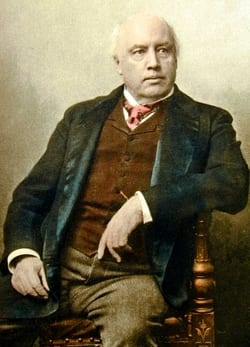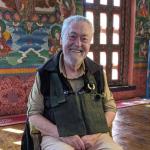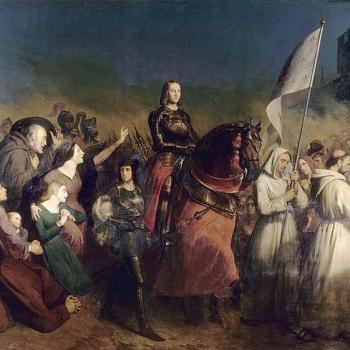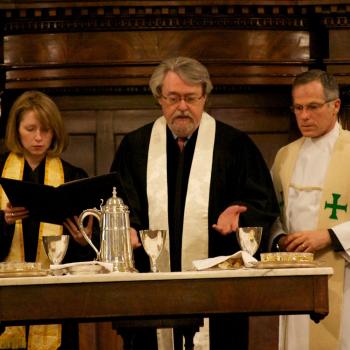
“The Great Agnostic”
Robert Ingersoll died on this day, the 21st of July, 1899.
Perhaps an unusual figure to note on the anniversary of his death, which is more commonly done in religious circles. Death being a marker for winning the victory and obtaining one’s reward. Some might sneer, suggesting his reward was hell-fire. But that’s not what I think. I see a life complete. And his was one of integrity and intelligence, which seemed to grow ever deeper into wisdom.
And that’s what I celebrate today.
A feast for Colonel Ingersoll.
My father was a great admirer of his, and loomed large in my young life, regularly being held up as an alternative to the family’s fundamentalist Christianity.
Robert Green Ingersoll was born on the 11th of August, 1833. He the son of a Congregationalist preacher. But in his case it was the treatment of his father by his congregations and denomination which probably first inspired the seeds of doubt. The Reverend Ingersoll was a broadminded liberal, as well as a social justice activist and abolitionist, who was tried for his liberalism, found guilty, and finally defrocked. While the Reverend was eventually restored to the ministry, the events were never forgotten by his son.
Briefly a school teacher, Ingersoll read the law and at twenty-one passed the Illinois bar in 1854. After building a practice he married Eva Amelia Parker in 1862. They would have two daughters.
With the outbreak of the war he raised a regiment, the 11th Illinois volunteers and led it as their colonel. He would be known by that military title for the rest of his life. Colonel Ingersoll saw combat at the battle of Shiloh. After the war he was elected Attorney General for the state, where he began to be noted in Republican circles for his fiery oratory. Ingersoll was encouraged to play down his agnosticism, about which he made no bones, and run for governor.
The colonel, however, refused to obfuscate his views on religion. So, he turned his attention to public speaking in an era when that was a principal form of entertainment. The Colonel was interested in and spoke on a wide range of subjects. His political talks were on fire. But as it turned out his celebrations of family and his blunt agnosticism bleeding quickly into atheism, were what gained him fame.
He could turn a phrase. He is remembered for his variation on the golden rule, “Give to every human being every right that you claim for yourself.” Similarly, “Happiness is the only good. The time to be happy is now. The plan to be happy is here. The way to be happy is to make others so.” I hope you notice the threads of interdependence in his various pronouncements. Others include “I am the inferior of any man whose rights I trample under foot.”
Of course, again, it was the colonel’s thoughts on religion that people most responded to. Rejecting the authority of various scriptures, all hierarchies, and the conventions of deities and souls, he came to have a sense of the world and our place in it. In his world, everything passes. “In the presence of eternity, the mountains are as transient as the clouds.” And, he really understood interdependence. The colonel declared, “In nature there are neither rewards nor punishments; there are consequences.” And his response to these insights was for us to take care of each other, to give ourselves over to the power of love.
Writer Kimberly Winston wrote of the good colonel, as he was usually styled, that he “was a Victorian-era rock star who packed theaters with people who traveled hundreds of miles to hear his lectures against religion.” He has been called “the Great Agnostic,” and America’s conscience.”
And while that era had passed by the time of my father’s birth in 1919, somehow my father stumbled upon his writings. I suspect while still very young. While my father had no formal education, he was a voracious reader. Among the books he picked up were several by the good Colonel.
My father liked how the colonel raised the plain errors and contradictions of the Bible. Of my various memories of my father, his citations of these errors and contradictions probably account for ten percent of them all. He really could get into it.
No doubt Colonel Ingersoll’s thinking was important to me from before things gathered into my own identity. And while religion would remain the golden thread of my life, it would always include some threads of hesitation and outright skepticism. Which gathered into who I was through my father and the colonel.
So, today, just a moment to offer a stick of incense…













